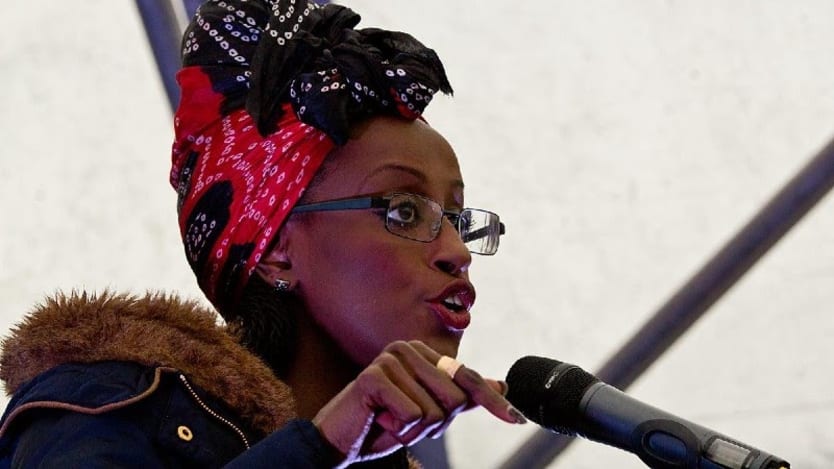Leyla Hussein: Donors can change attitudes toward aid worker mental health

The emotional well-being of aid workers and advocates is still not prioritized by employers — but donors could play a key role in changing this, according to Leyla Hussein, a psychotherapist and campaigner against female genital mutilation.
In an interview with Devex, Hussein — who was made an officer of the Order of the British Empire in 2019 for her advocacy work — said donors can help protect the mental health of grassroots campaigners and others working on the projects they fund. She said they are well positioned to change attitudes and policies in the sector by tying grants to the provision of mental health training and support for all teams involved.
“It’s so important that donors make this a requirement when people are applying for funding because it’s the only way we’re going to safeguard [mental health],” Hussein said.
“We've been so focused on trying to help other people but not recognizing our colleagues who deliver this work need to be supported.”
— Leyla Hussein, psychotherapist and anti-FGM campaignerLast month, she launched a training initiative in collaboration with the Orchid Project to support the emotional well-being of activists in Africa and equip them with the basics of self-care. The focus, for now, is on helping grassroots campaigners, who are often undervalued for their expertise while involved in work that is both physically and “emotionally dangerous,” she said.
However, Hussein emphasized that it’s not just activists and those on the front line who can face burnout and other mental health conditions. Anyone in the sector, from program staff members to the person reading the reports in the head office, can be triggered and struggle with these issues. There is a huge disconnect in the sector, she said, where “we've been so focused on trying to help other people but not recognizing our colleagues who deliver this work need to be supported.”
According to Hussein, many employers are still failing to see how their staff members can be triggered by the subjects they are working on and the impact this has on their mental health. As a result, there is a “pattern of burnout” in the sector that eventually leads to brain drain as people need to take time off or leave their organizations.
Opinion: Psychological first aid for front-line workers in quarantine
When nine of Action Against Hunger's aid workers tested positive for COVID-19, the organization undertook a survey to understand the psychological impact of quarantine. This op-ed discusses the results to help promote the physical and mental health of front-line workers.
While donors often also lack a real understanding of the challenges faced by those delivering programs, they can make a difference by making training around self-care and coping with secondary trauma a criterion for funding. “Every organization, every department [would then] need to implement this as part of their budget, as part of their mandatory training, [as well as] regular check-ins,” Hussein said. She noted that such interventions do not need to be expensive.
Hussein cited the Wallace Global Fund as one donor that has started taking this approach, and the United Kingdom’s Foreign, Commonwealth & Development Office agreed to similar requirements for a bid Hussein was involved in. She would like to see more donors follow suit and do so sooner rather than later.
The impact of the COVID-19 pandemic means the need for this support is urgent, Hussein said, especially with the increase in gender-based violence making it more dangerous then ever for activists, such as anti-FGM campaigners, to carry out their work. “Let’s not treat [mental health] like a side project,” she urged.
Update, Jan. 11, 2021: This article has been updated to clarify that the Wallace Global Fund is among the donors requiring mental health interventions for aid workers.
Search for articles
Most Read
- 1
- 2
- 3
- 4
- 5








